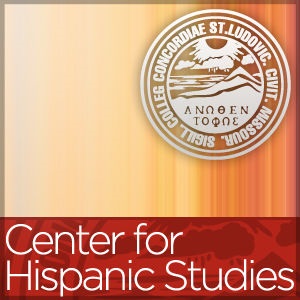Loading...
Start Date
24-1-2017 2:00 PM
End Date
24-1-2017 2:55 PM
Description
Though the two most influential theologians of the Protestant Reformation are often viewed as sectarian and polemical thinkers, their vision of the church in the sixteenth century --grounded in the priesthood of all believers (1 Peter 2:5)-- was decidedly cosmopolitan. Though we cannot impose a modern agenda onto their theological worldview, it will be argued that for their day and age, Luther and Calvin were progressive thinkers with a vision of a universal church built on democratic principles.
Lutero y Calvino, los dos teólogos más influyentes de la Reforma Protestante, son vistos a menudo como pensadores sectarios y polémicos, pero su visión de la iglesia en el siglo XVI -basado en el sacerdocio de todos los creyentes (1 Pedro 2:5)- fue decididamente cosmopolita. Aunque no podemos imponer una agenda moderna a su cosmovisión teológica, se argumentará que para su época, Lutero y Calvino fueron pensadores progresistas con una visión de una iglesia universal construida sobre los principios democráticos.
Submission Type
Bible Study; Lecture; Sermon Prep
Scripture References in this Resource (separated by semi-colons)
Matthew 28:16-20;
Submission Audience
Laity; Ministers; Scholars
People in this Resource (separated by commas)
Henrich Voes, Johann Esch, Lambertus Thorn, Patrick Hamilton, Robert Barnes,
Submission Cost
Free
12th Hispanic Annual Lecture/“Luther and Calvin on the Cosmopolitan Church”
Though the two most influential theologians of the Protestant Reformation are often viewed as sectarian and polemical thinkers, their vision of the church in the sixteenth century --grounded in the priesthood of all believers (1 Peter 2:5)-- was decidedly cosmopolitan. Though we cannot impose a modern agenda onto their theological worldview, it will be argued that for their day and age, Luther and Calvin were progressive thinkers with a vision of a universal church built on democratic principles.
Lutero y Calvino, los dos teólogos más influyentes de la Reforma Protestante, son vistos a menudo como pensadores sectarios y polémicos, pero su visión de la iglesia en el siglo XVI -basado en el sacerdocio de todos los creyentes (1 Pedro 2:5)- fue decididamente cosmopolita. Aunque no podemos imponer una agenda moderna a su cosmovisión teológica, se argumentará que para su época, Lutero y Calvino fueron pensadores progresistas con una visión de una iglesia universal construida sobre los principios democráticos.


